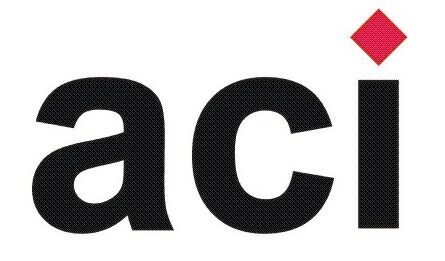 Teaching research methodology is a core component in developing new researchers, however it is often a major challenge for many academics to pass on this knowledge and skills. To b a competent researcher it is necessary not only to acquire skills in the techniques, but also to have an understanding of the philosophical issues which underpin research. As a result, many research methodology courses can be superficial with the emphasis being placed on collecting and analysing data. This may not be sufficient for the purposes of quality academic research. However, some good work is being done in this field in various parts of the world and the Innovation in the Teaching of Research Methodology Awards provides an opportunity to highlight such initiatives.
Teaching research methodology is a core component in developing new researchers, however it is often a major challenge for many academics to pass on this knowledge and skills. To b a competent researcher it is necessary not only to acquire skills in the techniques, but also to have an understanding of the philosophical issues which underpin research. As a result, many research methodology courses can be superficial with the emphasis being placed on collecting and analysing data. This may not be sufficient for the purposes of quality academic research. However, some good work is being done in this field in various parts of the world and the Innovation in the Teaching of Research Methodology Awards provides an opportunity to highlight such initiatives.
Past winners have included projects on Generating a Journal Article from a Thesis or Dissertation; Field Training Research Assistants and Using Storytelling and games to Teach Sampling Techniques and qualitative research. These projects have come from a wide range of countries including Malaysia, South Africa, UK and the Netherlands.
To enter the competition this year we ask you, in the first instance, to submit a 300 word abstract describing the initiative. If your proposal is suitable you will be invited to submit a case history of no more than 3000 words which will be considered as an entry to the competition. A panel of international adjudicators will evaluate the case histories. When preparing your abstract, keep in mind that full case history submissions will be structured around the following headings:
- Introduction to the specific objectives of the teaching initiative;
- The infrastructure i.e. people, systems, exercises, or perhaps hardware, software if any;
- The challenges that were encountered, how they developed and how they were overcome;
- How the initiative was received by the learners;
- The learning outcomes that were achieved and how they were measured and evaluated;
- Plans to further develop the initiative.
Authors of the top rated initiatives will be invited to register and attend the European Conference on Research Methodology for Business and Management Studies (ECRM) in Porto, Portugal on 4-5 July 2024 to present their case histories to the judges and conference participants. Finalists will also have their case histories included in a book. Prizes will be awarded to the initiative judged to be the most creative thinking with regards to teaching Research Methodology.
All presenters in the awards must attend the physical conference.
Important Dates
- Abstract Submission – 24 January 2024
- Notification of Abstract Acceptance – 07 February 2024
- Full Case History Submission – 18 March 2024
- Finalists announced –30 May 2024
If you have any queries please email: marti@academic-conferences.org
Click here to submit your entry
Compilations of Case Histories submitted to ECRM Excellence Awards, which were run alongside previous European Conferences on Research Methodology for Business and Management Studies are available to purchase here: www.academic-bookshop.com
More details about the ECRM conference can be found here information at: https://www.academic-conferences.org/conferences/ecrm/
Previous Winners
ECRM 2024
A Service-learning Approach on Students Consultancy Project: Marketing Research for Breast Cancer Prevention
Ilia Protopapa, King’s College London
How ChatGPT Became my Co-Lecturer
Sophie Hieke, Munich Business School, Munich, Germany
Teaching Research Methodologies Through Participatory Performance Text
Jocene Vallack, James Cook University, Townsville. Australia
ECRM 2023
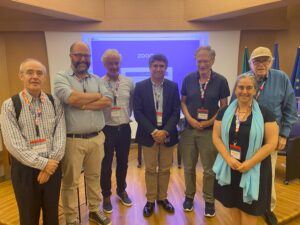 Using Understanding by design and Differentiated instruction to teach strategy and research methods in business studies
Using Understanding by design and Differentiated instruction to teach strategy and research methods in business studies
Andrea Mangiatordi, “R. Massa” University of Milano-Bicocca, Italy and Manuel Au-Yong-Oliveira, University of Aveiro, Portugal
DBI (doctorate in business innovation) at the University of Aveiro - research linking industry to academia- The creation of the novel Intuitive Feeling Research (IFR) method
António Gil Andrade Campos, Manuel Au-Yong-Oliveira and Klaus Kuehnel University of Aveiro, Portugal.
How can Students become Junior Scientists? The five year story of a Research Methodologies and Scientific Communication Course
Ana Isabel Azevedo, Mariana Curado Malta, Agostinho Sousa Pinto and Jose Manuel Azevedo, ISCAP, Polytechnic of Porto, Portugal
ECRM 2022
1st The Power of Many: Teaching qualitative management research through peer group reviews
Lakshmi Balachandran Nair, LUISS Guido Carli University, Italy
2nd Integrating Reflexivity in Qualitative Research Practice: Towards a double helix
Zeineb Djebali, University of Surrey, UK and Mark NK Saunders, University of Birmingham, UK
3rd Putting the Pieces Together: A Co-operative Jigsaw Literature Review Approach
Nadia Singh, Northumbria University, UK
ECRM 2021
Winner
Revitalizing the Methodological know-how Behind Typologies and Taxonomies
Martin J. Eppler, University of St. Gallen, Switzerland
Runner ups
Raising Green Hydrogen Energy Awareness while Teaching Research Methodology
Ning Ding and Uli Mathies
Students Helping out Fellow Students: Peer-to-peer Instruction on Research Methods in Portugal
Manuel Au-Yong-Oliveira, Cláudia Miranda Veloso, Cicero Eduardo Walter, Adriana Nishimura, Maria José Sousa, Ramiro Gonçalves, José Martins and Frederico Branco
ECRM 2020
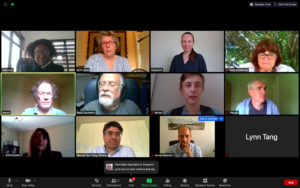 Winner:
Winner:
Developing First-Year Undergraduate Business Students’ Research Skills: Using a Model United Nations Framework
Dr Gyuzel Gadelshina, Northumbria University, UK
Joint Second Place:
A Holistic Approach to Academic Competences: Creating an Immersive Learning Experience
Kenny Meesters, Tilburg University and Yan Wang, Delft University of Technology, The Netherlands
Research Methods Index: A Case Study
Marcia Mkansi, University of South Africa, South Africa
ECRM 2019
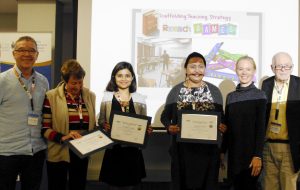
ECRM 2018
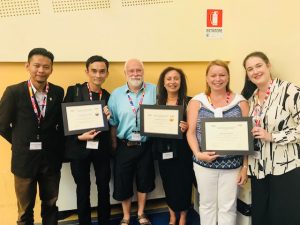
ECRM 2017
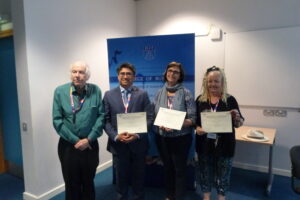
Developing Research Designs for Studies into Complex Socio-Technical Systems Jolien Ubacht, Bertien Broekhansand Bert Enserink, Delft University of Technology, The Netherlands
ECRM 2016
Human Resource Reflective Project: Developing Researching Professionals
Paul-Alan Armstrong and Patricia Bryans, University of Sunderland, UK
Finalists at ECRM 2016
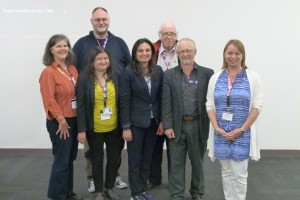
Using Storytelling to Teach Sampling Techniques Smirti Kutaula , Kingston University, Alvina Gillani, Surrey Business School and Mark Saunders, Birmingham Business School, UK
Developing Agents of Professional Learning in the Further Education Sector Julie Haddock-Millar , Middlesex University Business School, London, UK
Field Training Research Assistants: Underpinning Methodological Skills in Qualitative Research Martin Jamieson , Canterbury Christchurch University, UK
